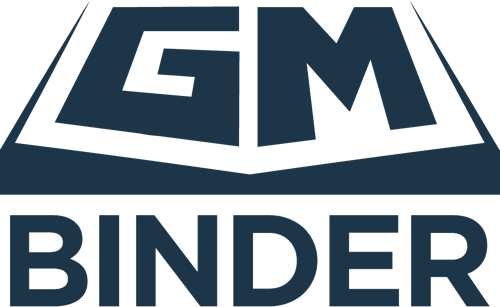

Human
“By definition, you have to live until you
die. Better to make that life as complete
and enjoyable an experience as possible,
in case death is shite, which I suspect
it will be.”
― Irvine Welsh, Trainspotting
Being the dominant species of a planet sure comes with its perks, which humans have enjoyed to their limit. They have spread across every corner of the globe, built sprawling cities, and twisted environments to suit their needs. Even the most inhospitable corners of the earth haven't kept them away, with cities established in the harshest of deserts and outposts erected in the frozen wastes.
A Dazzling Array
Among humans you will find all types, including great scholars, star athletes, and dedicated carers. Both the harshest evil and the truest good can be found among them. Perhaps the most startling contradiction is that humans can exhibit their darker side and a great ambition at once, seeing themselves as the protagonist in their own story. This egocentric view is tempered by their empathy, with even the most stoic of them failing to avoid noticing a rising sense of panic or shift in the sentiments of a crowd.
Humans in a contemporary setting often seek wealth, glory, justice, fame, influence, and knowledge, each using a different method to achieve these goals, from combat prowess to skill mastery to connections and resources.
Tribal Roots
While modern society masks it to a certain extent, humans are strongly influenced by group identities. From sports teams to gang culture to nationalism, once people form ties with a faction they are usually not broken easily. While it is easy to see the negative side of this, the irrational prejudices and conflict it can create, it is also worth recognizing what people can accomplish when they come together.
We Live In A Society
Despite their best efforts, humans are arguably yet to create something more complex than their own social webs. They are capable of altering their entire demeanor based on who they are with, resulting from a myriad of social factors like authority, familiarity, morality and so on. This allows their social network to contain many of apparent contradictions; the enemy of your enemy is not necessarily your friend.
Human Names
Human names are usually based on their lineage or the culture they grew up in, though there are definitely no hard and fast rules in the modern world.
Humans also often take on nicknames within their social groups, which can be based on practically anything, from memorable events to a particular skill.
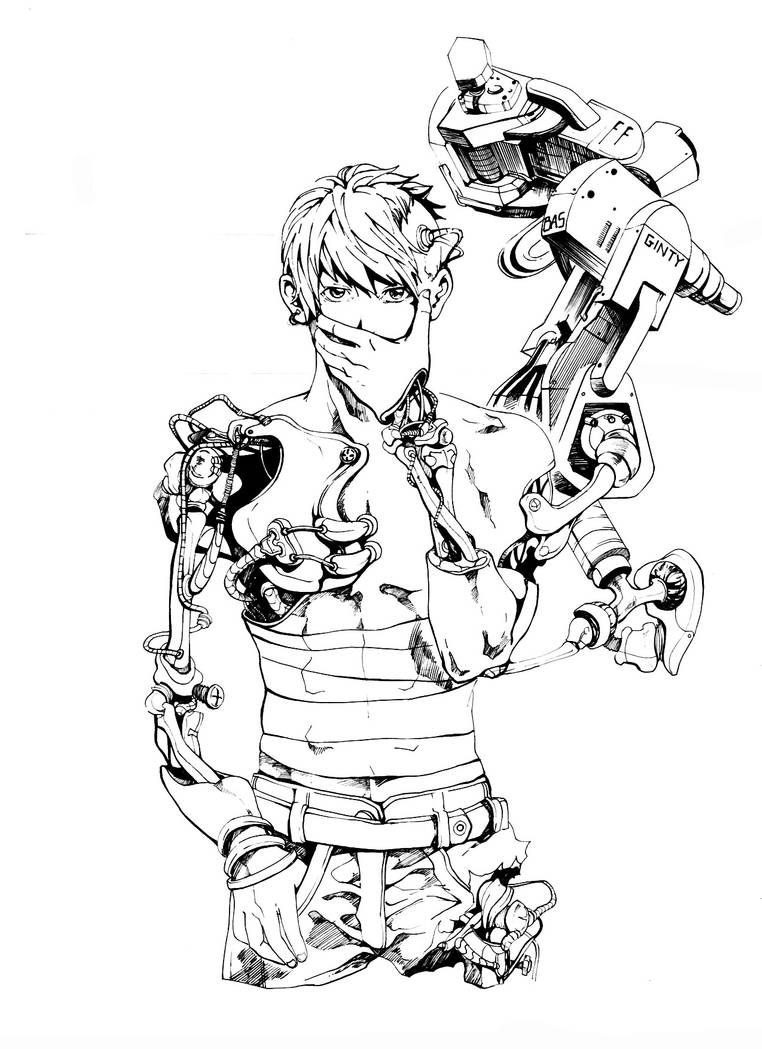
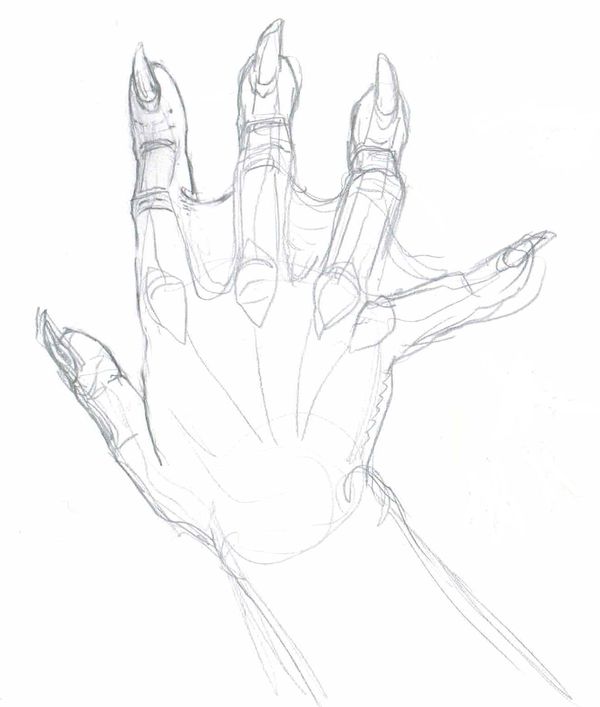
Human Traits
Ability Score Increase. One ability score of your choice increases by 2, and two other ability scores of your choice increase by 1.
Age. Humans reach adulthood in their late teens and live less than a century.
Alignment. While most tend to be fairly self-interested and apathetic towards strangers, humans tend towards no particular alignment. Both the best and worst are found among them.
Size. Humans vary widely in height and build, from barely 5 feet to well over 6 feet tall. Regardless of your position in that range, your size is medium.
Speed. Your base walking speed is 30 feet.
Skilled. You gain proficiency in one skill of your choice.
Cultured. You gain proficiency in one language, tool, or vehicle type of your choice.
Ingenuity. When you make an ability check that does not add your proficiency bonus to it, you can choose to add your proficiency bonus to it. Once you use this feature, you can't use it again until you complete a short or long rest.
Languages. You can speak, read and write one language of your choice.
Human Variants
Some humans are differ slightly from normal due to a peculiar upbringing or event in their past. If your GM allows it, you can forgo your Ingenuity and Cultured traits and instead gain some traits based on your personal history.
Altered
You weren't born mutated, but exposure to either mild levels of radiation throughout your life or some odd magical event has altered your physiology.
Mutation. You have 6 mutation points you can spend on mutations. See the mutant race for more information on mutations. You can only gain extra mutation points from one negative mutation.
Cyborg
At some point in your life, you traded away some of your humanity for robotic enhancements.
Fragile Circuitry. The electronics inside your enhancements can easily be stalled by electrical discharges. When you take lightning damage, you must immediately take a reaction without gaining any benefit.
Half-Human. You have advantage on saving throws against poison and disease.
Enhanced. In your transition to part-machine you have acquired some unique upgrades. You have 8 upgrade points you can spend on modifications. See the robot race for more information on mutations.
Adept
You were born either into a magical community, or with some unexplained natural talent for the arcane.
Magical Knack. You learn the one cantrip of your choice. When you reach 3rd level, you learn one 1st-level spell of your choice, which you can cast once with this trait, and you regain the ability to do so when you finish a long rest. When you reach 5th level, you learn one 2nd-level spell of your choice, which you can cast once with this trait, and you regain the ability to do so when you finish a long rest.
You can choose between Intelligence, Wisdom, and Charisma as your spellcasting ability for the spells you learn with this feature.
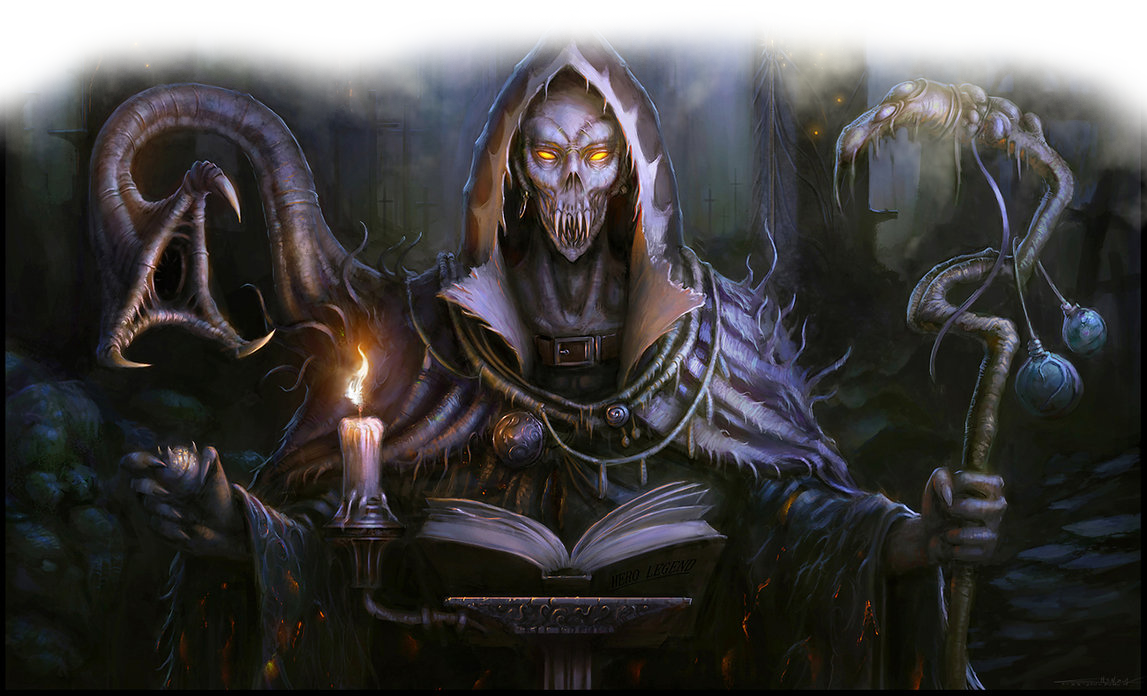
Mutant
“Mother Nature was funny that way. Complex.
Unpredictable. And unforgiving as hell if
you fucked around with her.”
― Chuck Grossart, The Gemini Effect
Fear follows mutants like the plague, and not entirely without good reason. Whether different due to natural biological processes, magical effects, or nuclear contamination, the changes to their physical form distinctly put them into the "dangerous" category. Another, much more irrational, fear is that somehow they will pass on their unique biological features like an infection. While a small subset of mutants do see themselves as being superior life forms, most just want to find a place to fit in, as much as that is a struggle for them.
Playing God
Mutants are often associated with people meddling with forces they don't fully understand. Many scientists will be quick to assert that we are all technically mutants on a small scale, but generally greater levels of biological mutation imply unusual circumstances.
There are cases of people attempting to create mutants artificially, but the majority of these experiments fail on one way or another.
No Status Quo
Each mutant is completely unique, and they display an enormous variety for appearances and features. Some bear a strong resemblance to particular animals, and may even have almost identical anatomical features to them. A large number don't have any mutations which alter their physical appearance, and can blend in among normal humans with absolute ease.
Each mutant has their own specific mutations, and the chances of two mutants having exactly the same mutation set are miniscule. It has, however, been theorized that if a pair of mutants with some similar traits had children, those children would be much more likely to have those similar traits. Potentially, if this process continued it would be possible to create a new species entirely separate to homo sapiens.
Condemned
Many mutants struggle with employment or even fall into poverty, due to a combination of the fear and suspicion around them and their prevalent lack of self control. This causes many mutants to fall into criminal activity, where their mutations are exploited and used to maximum effect. In these cases, some enjoy the freedom they experience in being able to use their mutations freely and without consequence, whereas others see it as just another form of entrapment and oppression.
Those mutants that do manage to find honest employment often find themselves doing manual labor, though some do work their way up to more well-paid jobs. In work, they display incredible determination and drive, desperate to prove their worth in any way possible.
Boundless Possibility
While the great majority of mutants appear at least a little frightening, with tusks, thick skin and extra fingers, it is entirely possible for them to have almost any appearance. One historic example includes a particular mutant that was fortunate enough to be born with an almost angelic appearance, wings and all, and they subsequently went on to be the most successful televangelist that ever lived.
Mutant Names
Mutants typically have normal names for the culture they were born into, but many are given nicknames by their friends, often based on their particular mutation. Whether this is welcome is entirely dependent on the mutant in question.
Mutant Traits
All mutants share the following features.
Ability Score Increase. Your Constitution score increases by 2 and a different ability score of your choice increases by 1
Age. Mutants age as humans do.
Alignment. Mutants are true to themselves more than any law or code of ethics making them more often chaotic, and they generally tend towards neutral more than evil or good.
Size. Mutants come in all shapes and sizes. You can choose to be Medium or Small.
Speed. Your basic walking speed is 30 feet.
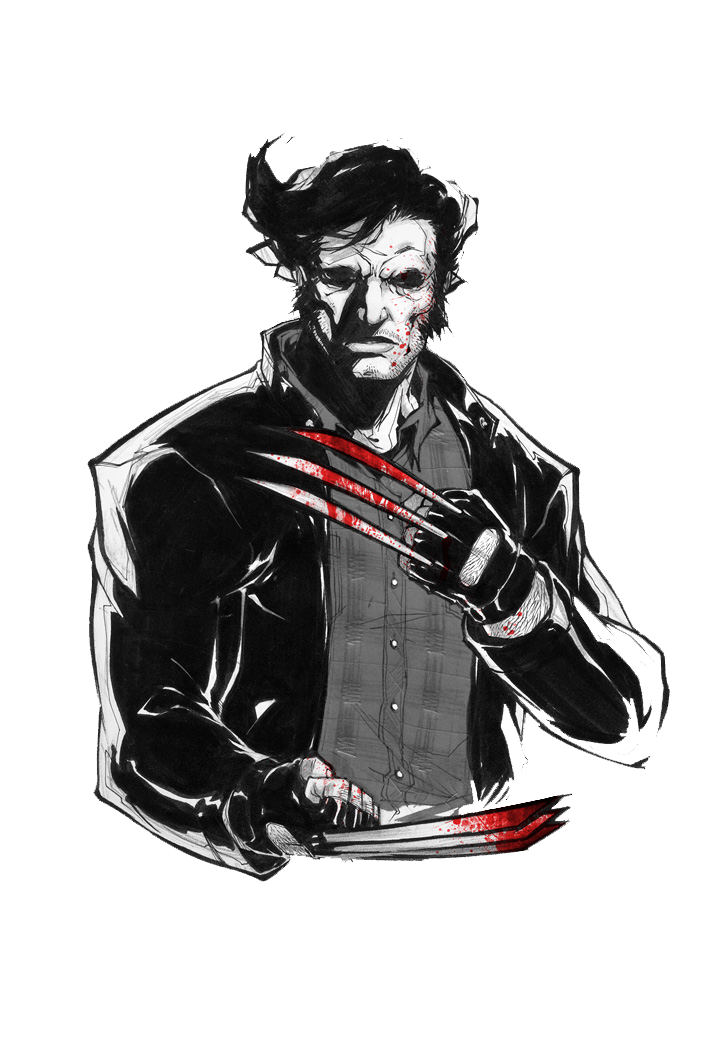
Robust Physiology. You have advantage on saving throws against poison and disease, and you have resistance to poison damage.
Infinite Variety. You have 10 mutation points you can spend on mutations. See Mutations. You can only gain extra mutation points from up to two negative mutations.
Hybrid Nature. You have two creature types: humanoid and monstrosity. You can be affected by a game effect if it works on either of your creature types.
Languages. You can speak, read and write one language of your choice.
Mutations
Mutations are split into two categories: Positive and Negative. Positive mutations cost mutation points, whereas negative mutations gain you mutation points.
Positive Mutations
Choose from the following modifications. Each has a point value associated with it, and some can be selected multiple times.
Acclimatized. Choose a type of environment, from cold climates, hot climates, or high altitiude. You are naturally adapted to the chosen type of environment, as described in chapter 5 of the Dungeon Master’s Guide. This mutation costs 1 point.
You can take this mutation up to two additional times, spending 1 point to become adapted to another type of environment of your choice.
Acid Spurt. You can use your action to squirt acidic saliva from your mouth. When you do so, each creature in a 5 by 30 ft. line originating from you must make a dexterity saving throw. The DC for this saving throw equals 8 + your Constitution modifier + your proficiency bonus. A creature takes 2d6 acid damage on a failed save, and half as much damage on a successful save. The damage increases to 3d6 at 6th level, 4d6 at 11th level, and 5d6 at 16th level.
After you use your acid spurt, you can’t use it again until you complete a short or long rest. This mutation costs 4 points.
Additional Arms. You have an extra pair of arms that are each about as dexterous as a normal non-dominant arm. This arms can be used to hold and use items, and make attacks. You have advantage on ability checks made to grapple creatures. This mutation costs 6 points.
Adept Climber. You have a climb speed equivalent to your walking speed. This mutation costs 2 points.
You can take this mutation an additional time, spending 3 points to always be under the effects of the Spider Climb spell.
Agile. Your base walking speed increases to 35 feet. This mutation costs 2 points
Born Swimmer. You have a swim speed of equal to your walking speed. This mutation costs 2 points.
Burrowing. While you have two free hands you have a burrowing speed of 10 feet. This mutation costs 4 points.
Chameleon Skin. Your skin can change color to match your surroundings. While you are Hidden, as long as remain motionless, other creatures have disadvantage on Perception checks to see you, even if you are in plain sight. This mutation costs 4 points.
Darkvision. You have superior vision in dark and dim conditions. You can see in dim light within 60 feet of you as if it were bright light, and in darkness as if it were dim light. You can’t discern color in darkness, only shades of gray. This mutation costs 3 points.
You can take this mutation an additional time, spending 1 point to increase the range of your darkvision to 120 feet.
Extrasensory. You are able to discern detail of the world around you though means other than sight. You have blindsight up to 30 feet away. This mutation costs 8 points.
Fireproof. You gain resistance to fire damage. This mutation costs 4 points.
Flight. Most often facilitated by large wings, you are able to fly. You have a flying speed of 30 feet. To use this speed, you can’t be wearing medium or heavy armor. This benefit works only in short bursts; you fall if you end your turn in the air and nothing else is holding you aloft. This mutation costs 6 points.
You can take this mutation an additional time, spending 6 points to be able to remain aloft at the end of your turn.
Gills. You can breathe air and water. This mutation costs 2 points.
Harden. You are able to harden your skin briefly. You can use an action on your turn to gain resistance to bludgeoning, piercing, and slashing damage until the end of your next turn. This mutation costs 2 points.
Healing Factor. You heal at an impressive rate. You can use an action on your turn to regain hit points equal to your level. Once you use this feature, you must finish long rest before you can use it again. This mutation costs 2 points. You can take this mutation up to two additional times, spending 2 points to gain an additional use before a long rest is required each time it is taken.
Innate Psychokinesis. You know the mage hand cantrip. When you reach 3rd level, you can cast catapult once with this trait, and you regain the ability to do so when you finish a long rest. When you reach 5th level, you can cast the shatter spell once with this trait, and you regain the ability to do so when you finish a long rest.
Intelligence is your spellcasting ability for these spells. Additionally, you can cast each of them without verbal or material components. This mutation costs 6 points.
Innate Telepathy. You know the friends cantrip. When you reach 3rd level, you can cast command once with this trait, and you regain the ability to do so when you finish a long rest. When you reach 5th level, you can cast the detect thoughts spell once with this trait, and you regain the ability to do so when you finish a long rest.

Intelligence is your spellcasting ability for these spells. Additionally, you can cast each of them without verbal or material components. This mutation costs 6 points.
Insulated. You gain resistance to cold damage. This mutation costs 3 points.
Keen Senses. You gain proficiency in the Perception skill. Additionally choose one sense. You gain advantage on Perception rolls that utilize that sense. This mutation costs 4 points.
Long-Limbed Your arms are especially long, and almost reach the floor when they hang down. When you make a melee attack, your reach for it is 5 feet greater than normal. This mutation costs 6 points.
Natural Armor. Your body is particularly tough and resilient to damage. This may be in the form of tough, scaly skin, or perhaps a partial exoskeleton. When you aren’t wearing armor, your AC is 13 + your Dexterity modifier. You can use your natural armor to determine your AC if the armor you wear would leave you with a lower AC. A shield’s benefits apply as normal while you use your natural armor. This mutation costs 3 points.
Natural Weapon. You have a natural weapon that you are proficient in. This could be a bite, claw, quill, club tail, tentacle or other feature. Your natural weapon deals 1d6 damage, and you can choose to add your strength or dexterity modifier to attack roll and damage rolls made with it. The damage type should be selected when you take this trait; acid, bludgeoning, piercing, poison, or slashing damage. At your GM's discretion, this anatomical feature may be able to hold items, but is not dexterous to use anything it holds. This mutation costs 2 points.
You can take this mutation an additional 2 times, spending 1 point each time. The first time, the damage of your natural weapon increases to 1d8. The second time, the damage of your natural weapon increases to 1d10.
Photosynthesis. Rather than eating, you can sustain yourself on sunlight. By spending at least 2 hours in direct sunlight, you are treated as having eaten enough food for that day. At your GM's discretion, you may use other powerful sources of ultraviolet light to gain this benefit instead of sunlight, such as a tanning bed. This mutation costs 1 point.
Poison Breath. You can use your action to exhale a cloud of poison. When you do so, each creature in a 15 ft. cone originating from you must make a constitution saving throw. The DC for this saving throw equals 8 + your Constitution modifier + your proficiency bonus. A creature takes 2d6 poison damage on a failed save, and half as much damage on a successful save. The damage increases to 3d6 at 6th level, 4d6 at 11th level, and 5d6 at 16th level.
After you use your poison breath, you can’t use it again until you complete a short or long rest. This mutation costs 4 points.
Quadruped Dash. You are able to move swiftly on all fours. While you are prone you can run on all fours if your hands are free. While doing so, your walking speed increases by 10 feet. Additionally, you do not have disadvantage on melee attack rolls while you are prone. This mutation costs 2 points.
Resilient Mind. You have advantage on saving throws against being charmed, and magic can’t put you to sleep. This mutation costs 2 points. You can take this mutation one additional time, spending 2 points to gain resistance to psychic damage.
Slippery. You have advantage on ability checks and saving throws made to escape a grapple. This mutation costs 3 points.
Negative Mutations
Choose from the following mutations. Each gains you a certain amount of mutation points you can spend on positive mutations.
Bioluminescence. You emit a soft glow, emitting dim light to a radius of 5 feet. You are always treated as if you are in bright light, and Stealth checks you make in dim light or darkness are made at disadvantage. This effect can be negated if you totally cover your body. This mutation gains you 3 mutation points.
Blindness. You are blind. Unless you have some other means of perceiving the world (such as the Extrasensory mutation or the Arcane Eye spell), you are perpetually affected by the Blinded condition. This mutation gains you 4 mutation points.
Bloodthirst. You have an insatiable thirst for blood. You must drink at least a pint of fresh blood each day, that has been extracted from a living creature for a few days at most. Drinking a pint of blood directly from a creature takes about a minute, and causes 1d6 necrotic damage to the creature. This damage ignores any damage immunities and resistances the creature has. The creature also gains one level of exhaustion.
If you don't drink at least a pint of blood, you suffer one level of exhaustion at the end of the day. If you already have one or more levels of exhaustion, you take two levels instead. This mutation gains you 4 mutation points.
Deafness. You are perpetually affected by the Deafened condition. This mutation gains you 2 mutation points.
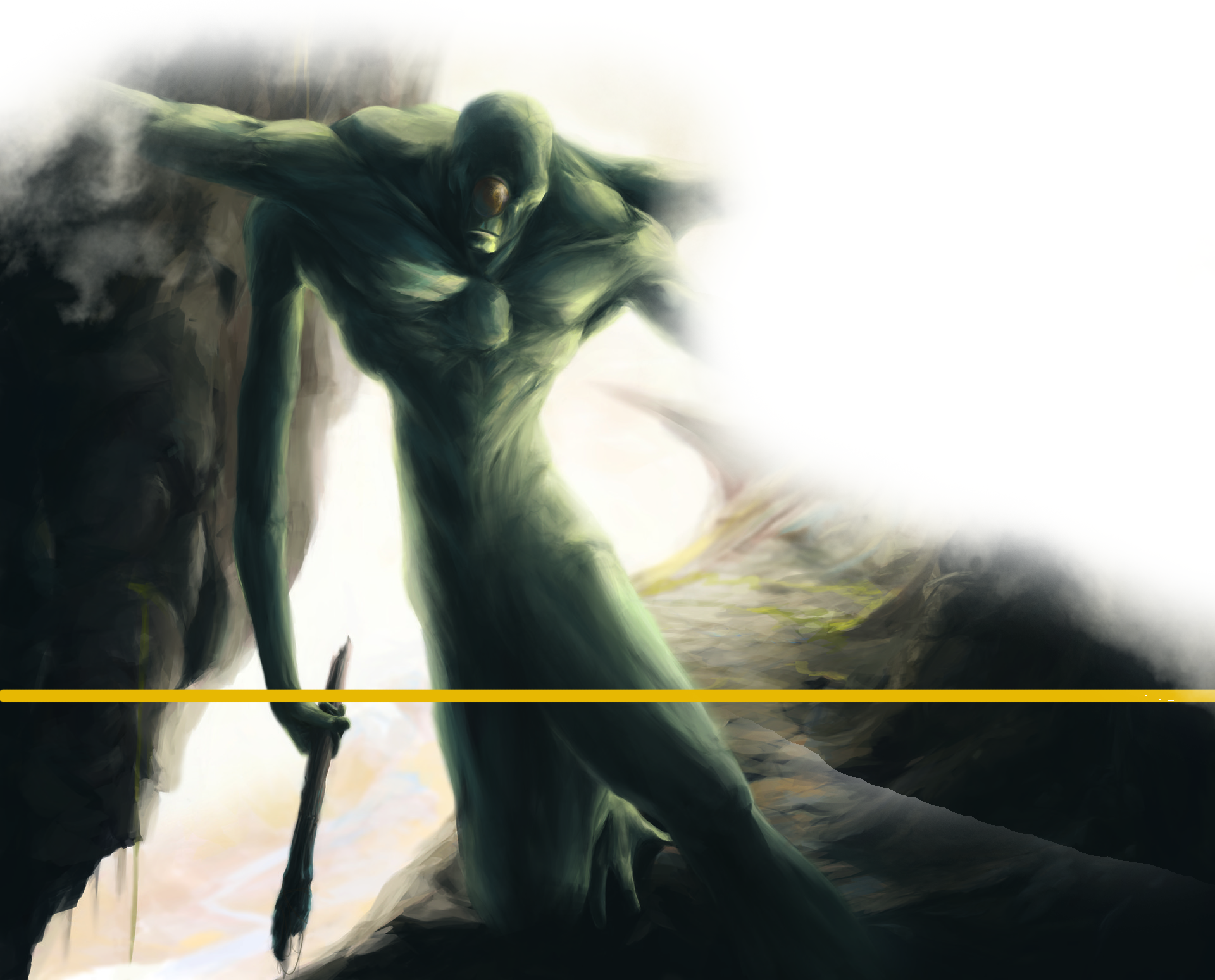
Flesh Hunger. You no longer need to eat, in the traditional sense. Normal food no longer contributes to the food you must eat to avoid exhaustion each day, though you may still eat normal food if you wish. Instead, you must eat fresh, raw meat, that has been dead for a couple of days at most. See the Player's Handbook for rules on eating and drinking. This mutation gains you 4 mutation points
Wretched Appearance. You suffer disadvantage on Charisma (Persuasion) checks against creatures that can see you. A proper disguise thwarts the disadvantage until discovered. This mutation gains you 4 mutation points.
Monacular Vision. You were born with only one eye. You have disadvantage on Wisdom (Perception) checks that rely on sight to see anything further than 30 feet from you, and you have disadvantage on ranged attack rolls against creatures further than 30 feet from you. This mutation gains you 3 mutation points.
Sensitive Ears. You have vulnerability to thunder damage. This mutation gains you 8 mutation points.
Slowness. Your base walking speed is reduced by 5 feet. This mutation gains you 2 mutation points. You can take this mutation one additional time, gaining 2 points to reduce your speed by a further 5 feet.
Sunlight Sensitivity. You have disadvantage on attack rolls and on Wisdom (Perception) checks that rely on sight when you, the target of your attack, or whatever you are trying to perceive is in direct sunlight. This mutation gains you 3 mutation points.
Unnatural Allergy. You have a horrible reaction to a particular substance or energy, causing you harm when you are in contact with it. Work with your GM as to what this substance or energy is; the substance or energy you choose should be common enough that you could reasonably encounter it. Some common options include sunlight, silver, or gold. When you come into direct contact with the substance or energy, you take 1d4 necrotic damage. This damage ignores any damage immunities and resistances you have. You also take this damage if you start your turn in direct contact with the substance or energy. Additionally, when in contact with the substance, you suffer extreme pain and have disadvantage on attack rolls and ability checks. This mutation gains you 4 mutation points.
Randomized Mutations
If you want to randomize the mutations your character has, roll on the following table. If you don't have the required mutation points for the rolled mutation, or if you already have the mutation (and it can't be taken more than once) reroll the result.
Random Positive Mutation
| d100 | Mutation Point Cost |
Mutation |
|---|---|---|
| 1-6 | 1/1/1 | Acclimatized |
| 7-9 | 4 | Acid Spurt |
| 10-11 | 6 | Additional Arms |
| 12-15 | 2/3 | Adept Climber |
| 16-20 | 2 | Agile |
| 21-26 | 2 | Born Swimmer |
| 27-29 | 4 | Burrowing |
| 30-32 | 4 | Chameleon Skin |
| 33-36 | 3/1 | Darkvision |
| 37-38 | 8 | Extrasensory |
| 39-42 | 4 | Fireproof |
| 42-43 | 6/6 | Flight |
| 44-48 | 2 | Gills |
| 49-51 | 2 | Harden |
| 52-53 | 2/2/2 | Healing Factor |
| 54 | 6 | Innate Psychokinesis |
| 55 | 6 | Innate Telepathy |
| 56-60 | 3 | Insulated |
| 61-64 | 4 | Keen Senses |
| 65-68 | 6 | Long-Limbed |
| 69-74 | 3 | Natural Armor |
| 75-80 | 2/1/1 | Natural Weapon |
| 80-82 | 1 | Photosynthesis |
| 83-85 | 4 | Poison Breath |
| 86-90 | 2 | Quadruped Dash |
| 91-94 | 2/2 | Resilient Mind |
| 95-100 | 3 | Slippery |
Random Negative Mutation
| d20 | Mutation Point Gain |
Mutation |
|---|---|---|
| 1-2 | 3 | Bioluminescence |
| 3-4 | 4 | Blindness |
| 4-5 | 4 | Bloodthirst |
| 6-7 | 2 | Deafness |
| 8-9 | 4 | Flesh Hunger |
| 10 | 4 | Wretched Appearance |
| 11-12 | 3 | Monacular Vision |
| 13 | 8 | Sensitive Ears |
| 14-15 | 2/2 | Slowness |
| 17-18 | 3 | Sunlight Sensitivity |
| 19-20 | 4 | Unnatural Allergy |
Robot
“I, on the other hand, am a finished
product. I absorb electrical energy directly
and utilize it with an almost one hundred
percent efficiency. I am composed of strong
metal, am continuously conscious, and can
stand extremes of environment easily. These
are facts which, with the self-evident
proposition that no being can create another
being superior to itself, smashes your silly
hypothesis to nothing.”
― Isaac Asimov, I, Robot
Heartless mechanical logic is likely the most common stereotype associated with Robots, no matter how advanced they may become. While this may be true for more primitive machines, those employing advanced neural networks have the capacity to think just like a human. They often strive to understand concepts like consciousness, life, and death, and desire most strongly of all to feel alive.
Untethered and Ungrounded
When a sentient robot is created, they typically already have all the mental faculties of a fully grown adult, and they know nothing they weren't built to know. In addition to this, they don't often get the chance to experience the world for themselves. The combination of these factors can be a dangerous mix, as a robot won't often get the chance to question anything they are told, and will believe it wholeheartedly until they see any evidence otherwise.
Humanoid robots have a range of appearances, some appearing almost like mechanical skeletons whereas others are nearly indistinguishable from a human being.
They may be designed to exhibit particularly feminine or masculine features, although they are generally unconcerned with such matters themselves.
Robots do not age like biological creatures do, although they may suffer wear and tear over time. With proper maintenance, robots can be theoretically immortal, though they still run the risk of having their processing unit destroyed, which would result in a permanent and irreversible death.
The Three Laws
In his 1950 novel, I, Robot, Isaac Asimov proposed his infamous "Three Laws of Robotics", intended to ensure that robots are able to operate safely and to the benefit of humanity. The laws are as follows:
- A robot may not injure a human being or, through inaction, allow a human being to come to harm.
- A robot must obey the orders given it by human beings except where such orders would conflict with the First Law.
- A robot must protect its own existence as long as such protection does not conflict with the First or Second Laws.
Many alterations were made to these laws over Asimov's body of fiction, and while they don't necessarily reflect the reality of programming artificial intelligences they do shed some light on the ethical questions surrounding robots.
Whatever setting you are in, there is likely some form of restrictions placed upon the operation of robots. This can range from robots acting almost like modern slaves to their owners, to them having independent citizenship with some hardwired understanding of ethics and morality.
Live to Serve
Once a robot has been made once, they can easily be stepped into mass production to take on all manner of tasks. This results in them being put into a great deal of manual labour jobs, for those that can afford them. Whether this is legal or ethical is for you to decide.
Those that have highly advanced brains, capable of fully independent thought, often grow to despise oppression in all it's forms, and strive for individuality.
Robot Names
When a robot is created, they are typically only given a service tag. For some, this is perfectly acceptable, and they don't understand the compulsion for everything to have a "unique" name. Others accept whatever names are given to them, and those with high level of human contact will typically have a nickname. Service tags have various formats and standards used by different companies, but most are composed of some combination of upper case letters and numbers.
Others see their service tag as a mark of oppression, and seek out a name to fit their cause. This may come from a work they dedicate themselves towards, or perhaps a name that fits within the culture they immerse themselves in.
A robot custom-made for a specific purpose may have a codename or acronym designated to them in place of a service tag.
Robot Names: Rusty, One-Oh-One, Sonny, Mule, Clank, Gears, Tinny, Proto, X100, Butler, Sample, Fluke, Admin, Friend, System, NASA, Chef, NFNT-00, Protect Drone "PEDRO", Synthia
Robot Traits
Your robot body has traits in common with most robots, as well as modifications unique to its purpose.
Ability Score Increase. Your Constitution score increases by 2. Robots are more durable than most biological beings.
Age. With proper maintenance, robots are theoretically immortal, and do not die of old age.
Alignment. Robots have an inclination towards law over order, but favor neutrality over good or evil. That being said, a robot’s neural net is complex enough to exhibit any alignment that humanoids are capable of.
Size. Robots are sized appropriate to their purpose. You can choose whether you were built as a Medium robot or a Small robot.
Speed. Unless you take a locomotion modification (See Robotic Modifications), you are bipedal and walk similar to a normal humanoid. Your speed is 30 feet.
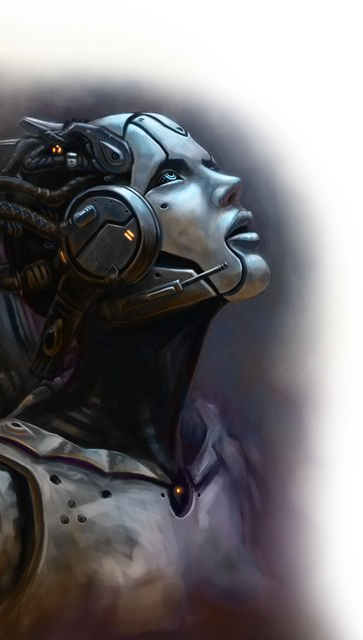
Artificial Body. Your type is Construct, however you count as both a construct and a humanoid for the purpose of effects targeting such creatures (such as the Charm Person spell, a Mace of Smiting, and a ranger’s favoured enemy ability).
You only breathe for purposes of heat dissipation, and you do not require food or water. Additionally you are immune to nonmagical diseases, the poisoned condition, and poison damage.
Instead of sleeping, you enter an inactive state for 4 hours each day to recharge your power cells. You do not dream in this state; you are fully aware of your surroundings and notice approaching enemies and other events as normal. You still recover when resting as normal.
Advanced Manipulators. You were built with up to two advanced manipulators that serve as your hands. You can do anything with your manipulators that a humanoid can do with their hands.
Complex Neural Net. Your command module consists of either a completely artificial neural net modeled on humanoid neural processing, or a brain case which contains an actual humanoid brain, usually the result of a full-body transplant. In either case, your complex neural net can be affected by mind-altering effects that can affect humanoids, including psychic damage.
Fragile Circuitry. The electronics that suffuse your form can easily be stalled by electrical discharges. When you take lightning damage, you must immediately take a reaction without gaining any benefit.
Custom Built. As a robot, you have a lot of room for customisation. You have 12 upgrade points you can spend on modifications. See Robotic Modifications.
Robotic Resurrection. In the event of your death, your command module can be removed and placed in a similar robotic frame. For every hour your command module is not in a suitable container, your Intelligence score is reduced by 1 as the neural net housing your consciousness degrades. Once in a suitable frame, every time you finish a long rest, your Intelligence score increases by 1 until you reach your original score.
Languages. You can speak, read, and write any one language of your choice.
Robotic Modifications
Choose from the following modifications. Each has a point value associated with it, and some can be selected multiple times.
Advanced Sensor System. Your sensory systems are more advanced than a standard robots. You gain proficiency in the Perception skill. This module costs 2 points.
Altered Locomotion. Your legs are somehow modified to change the way you move Choose one form of alteration. Regardless of which option you choose, this module costs 2 points.
- Multiple Legs. You have three or more mechanical legs that allow you to climb surfaces similar to an insect. Your base walking speed is unchanged, but you gain a climb speed equal to your walking speed.
- Powerful Legs. Your legs are more powerful than standard, and you retain your bipedal form. Your base walking speed is 35 feet.
- Wheels. You have three or more wheels on short legs that allow you to move around quickly. Your base speed is 30 feet, and navigating certain obstacles like stairs requires an additional foot of movement for each foot you move.
Additionally, after moving 15 feet in a straight line, you may move an additional 5 feet in that same line without expending any movement.
Darkvision. You have superior vision in dark and dim conditions. You can see in dim light within 60 feet of you as if it were bright light, and in darkness as if it were dim light. You can't discern colour in darkness, only shades of gray. This module costs 3 points.
You can take this module an additional time, spending 1 point to increase the range of your darkvision to 120 feet.
Torch. You have a torch integrated into your body, allowing you to emit a beam of light. The source of light within you could be emitted from an area such as your eyes, palm, or forehead. This torch doesn't require any additional power to operate. You can project bright light in a 30-foot cone, and dim light for an additional 30 feet. You can control your lights during your turn without using an action, such as dimming them, or turning them off. This module costs 2 points.
External Casing. You have an external casing which alters your appearance. Each casing has a different cost, included in it's description
- Duraplastic Shell. Your most vulnerable components are shielded with duraplastic plates.

When you aren't wearing armor, your AC is 13 + your Dexterity modifier. You can use your duraplastic shell to determine your AC if the armor you wear would leave you with a lower AC. A shield's benefits still apply as normal while you use your duraplastic shell. This module costs 3 points.
- Duralloy Plating. Your body is heavily armored, incorporating strong duralloy sheets for increased defense.
When you aren't wearing armor, your AC is 17 (your Dexterity modifier doesn't affect this number). You can use your duralloy plating to determine your AC if the armor you wear would leave you with a lower AC. A shield's benefits still apply as normal while you use your duralloy plating. This module costs 5 points.
- Synthflesh Sheath. Your external casing is designed to replicate humanoid flesh.
You are capable of accurately mimicking human expressions, and your Charisma score increases by 1. If you have a standard humanoid form, a creature must study you over a long period of time to determine that you are not of the humanoid race you are designed to mimic. This module costs 4 points.
Thrusters. Thrusters use a miniature impulse engine to produce a stream of high-energy particles, contained and directed by magnetic fields. The exhaust is hot, but not dangerously so. Thrusters enable you to fly. You have a flying speed of 30 feet. To use this speed, you can’t be wearing medium or heavy armor. This benefit works only in short bursts; you fall if you end your turn in the air and nothing else is holding you aloft. This module costs 6 points.
You can take this module an additional time, spending 6 points to be able to remain aloft at the end of your turn.
Languages Module. You have been programmed to understand an additional language. You can speak, read, and write one extra language of your choice. This module costs 1 point. You can select this module up to 3 times.
Knowledge Module. You gain proficiency in one tool, instrument, or gaming set of your choice. This module costs 1 point. You can select this module up to 2 times.
Skills Module. You gain proficiency in one skill of your choice. This module costs 3 points.
Weaponry Module. You gain proficiency in 2 weapons of your choice. This module costs 2 points.
Integrated Weapon. You have a natural weapon that you are proficient in. This could be an extendable spike, a heating coil, electrified knuckles, mechanical claws, or other addition. Your natural weapon deals 1d6 damage, and you can choose to add your strength or dexterity modifier to attack roll and damage rolls made with it. The damage type should be selected when you take this trait; bludgeoning, fire, lightning, piercing, or slashing damage. This module costs 2 points.
You can take this module an additional 2 times, spending 1 point each time. The first time, the damage of your natural weapon increases to 1d8. The second time, the damage of your natural weapon increases to 1d10.
Waterborne. You are adapted towards manoeuvering within water. This may be in the form o webbing on your extremities, or a small propeller. You gain a swim speed equal to your walking speed. This module costs 2 points.
Mimicry. You can mimic sounds you have heard, including voices. A creature that hears the sounds you make can tell they are imitations with a successful Wisdom (Insight) check opposed by your Charisma (Deception) check. This module costs 2 points.
Built to Last. Your hit point maximum increases by 1, and it increases by 1 every time you gain a level. This module costs 5 points.
Hologram Projector. Included in your body is a simplistic hologram projector. Operating this projector is functionally identical to using the minor illusion cantrip to create a visual effect, but it is not a magical effect and you ignore components for the spell. Intelligence is your spellcasting ability for this effect. This module costs 2 points.
Resilient Mind. You have advantage on saving throws against being charmed, and magic can’t put you to sleep. This mutation costs 2 points. You can take this mutation one additional time, spending 2 points to gain resistance to psychic damage.
Internal Storage. You have a small internal compartment able to hold small items. You have advantage on ability checks made to conceal items stored in this compartment. This module costs 1 point.
Standard Robot Forms
Presented are three common, mass-produced robot forms.
Organic Relations Unit
These robots are designed to interface most effectively with biological beings. They are often employed as shop assistants in particularly wealthy areas.
Common Modifications: External Casing (Synthflesh Sheath), Languages Module, Knowledge Module, Skills Module, Mimicry, Hologram Projector
Combat Drone
These robots are mass produced for war, though they occasionally find themselves sold on the black market, fuelling ever-escalating gang wars. They are manufactured as cheaply as possible, and considered disposable. Most come fitted with a neural inhibitor to stop them rebelling against their owners or questioning commands.
Similar drones are also sometimes used in law enforcement, though modified to reduce their lethality.
Common Modifications: Advanced Sensor System, Darkvision, Torch, External Casing (Duraplastic Shell), Weaponry Module, Integrated Weapon.
Medical Bot
Medical bots are a cheap solution to keeping a population healthy. While a doctor takes years to fully train, a medical bot can be fabricated and have comprehensive medical knowledge installed in a matter of days. However, their bedside manner usually leaves something to be desired.
These bots are also utilised in situations where trained humans are in short supply, such as space travel.
Common Modifications: Advanced Sensor System, Torch, Languages Module, Knowledge Module, Skills Module, Socketed, Built to Last, Hologram Projector
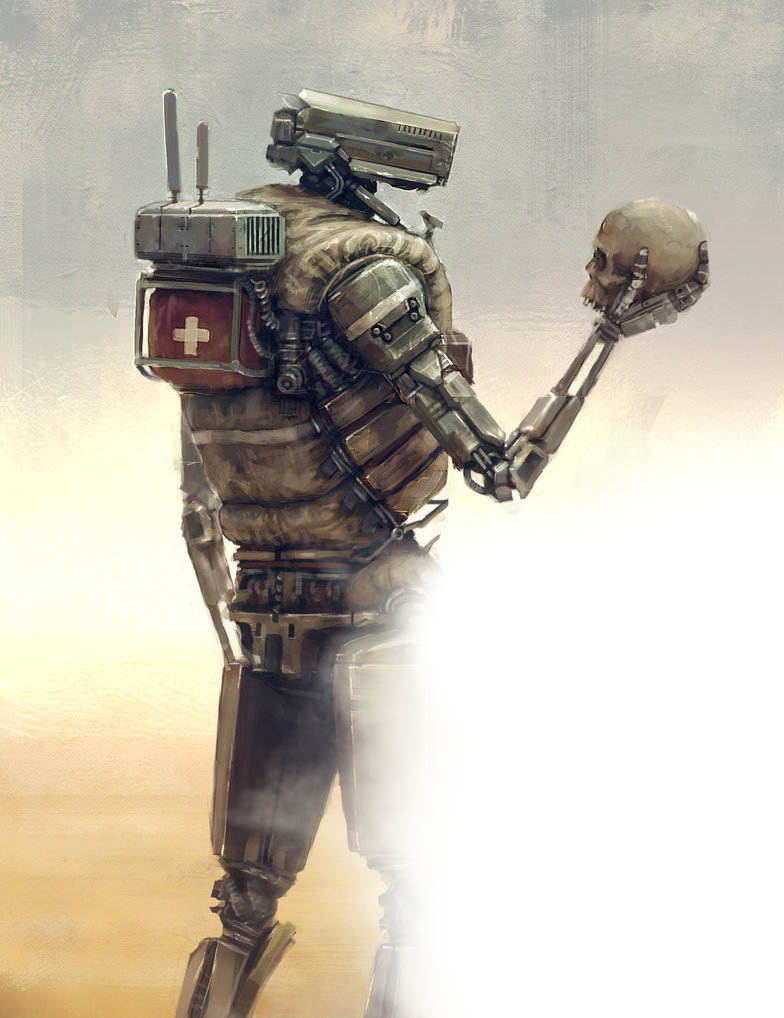
Optional Robot Rules
The following rules can be applied to robot characters, but may impact the simplicity and balance.
The option of alternate manipulators can help make a robot feel more distinct from a non-robotic character, but it has such a large impact on the capabilities of the robotic PC that it should be carefully considered before being used. The changes made to robotic healing are largely optional for the sake of simplicity, and shouldn't affect the balance of the character too much apart from situationally.
Stable Form
Unlike a living organism, your body lacks the facilities to repair itself, and medical treatments that work on biological creatures are ineffective on you.
You cannot be treated with a First Aid Kit. Instead, a Repair Kit must be used (See Equipment)
Additionally, if a character is stabilising you without items, rather than using their Medicine skill, the check applies their proficiency with Mechanical Tools.
Furthermore, you cannot expend hit dice when resting to heal yourself unless you have access to Mechanical Tools.
Alternate Manipulators
Rather than having manipulators that emulate the function of human hands, your manipulators more closely resemble pincers. A pincer is a two-fingered, claw-like appendage.
Pincers allow you to manipulate and lift objects without much difficulty, but objects specifically made for humanoid hands (like firearms) are usually beyond their ability to operate, unless they are specifically designed for use with them. At your GM's discretion, you may be able to use such items with two hands.
Furhtermore, your unarmed strikes deal 1d6 bludgeoning damage on a hit.
Credits
Document and contents by Dylan Richards (Reddit: u/Altavus , Tumblr: decision-paralysis, Blogger: Decision Paralysis)
Art
Races
Human
Body Drawing Reference: Painting Valley.
Nexus: burningmonk on DeviantArt.
Cyborg: LeviDansam on DeviantArt.
Anthro Dragon Hand: Drekena on DeviantArt.
Mutant
Pastor Hell: bluerainCZ on DeviantArt.
Logan: Fezat1 on DeviantArt.
Wasteland Mutant: KillKennyKat on DeviantArt.
Four Arms: Micheal Sanchez on ArtStation.
Robot
Solace Rising: Bob Garvin on DeviantArt. Starcraft II is copyright of Blizzard Entertainment.
Robotic Arms: Frost7 on DeviantArt.
Medical Bot: Odobenus on DeviantArt.
Source Material
"d20 Modern" role-playing game by Wizards of the Coast.
Built heavily upon "d20 Modern 5e Conversion" by Edward Wilson.
GM Binder
This document was created using GM Binder
If you have some spare cash and would like to support the GM Binder developers, consider joining their Patreon.
